March 22, 2022
Engaging Guam’s Early Childhood Educators in Social & Emotional Learning through Conscious Discipline
By Eloise Sanchez and Amy Speidel
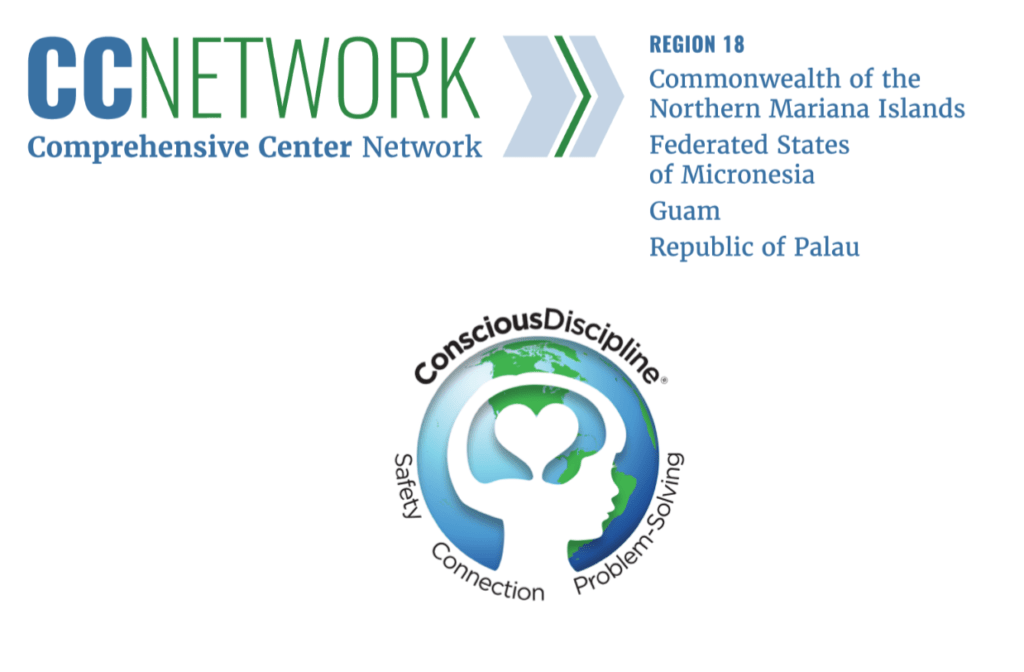
While many of our public schools throughout the nation have focused over the last two years on implementing various instructional approaches due to the COVID-19 pandemic, the Region 18 Comprehensive Center (R18CC) and the Guam Department of Education (GDOE) facilitated its first in-person professional development for Early Childhood Educators since January 2020. The Social & Emotional Learning: Conscious Discipline training was held from Tuesday, January 18th through Friday, January 21st, 2022 ChST at the University of Guam’s School of Business Building in Mangilao, Guam (Guåhan). The participants included Preschool Teachers, Kindergarten Teachers, Childcare Directors/Providers, Instructional Coaches, District Mentors and designated School Elementary Principals with Preschool Programs.
The shift from a virtual to an in-person professional development modality made all the difference in providing Early Childhood Educators with high-quality learning experiences. Instead of working in virtual breakout rooms, participants were able to turn to their partner and engage in deeper discussions on the various social and emotional concepts.
Ms. Amy Speidel, the main facilitator of the Conscious Discipline Training, stated that facilitating the in-person training provided her the opportunity to demonstrate the various Conscious Discipline Strategies more effectively. Ms. Speidel was able to actively engage the participants throughout the sessions.
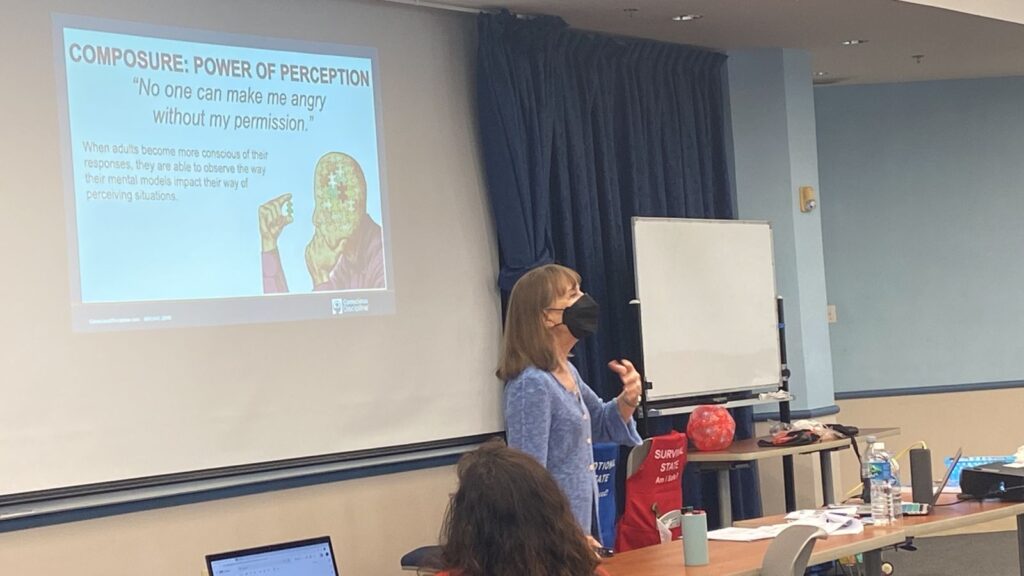
Ms. Amy Speidel explains the concept of “Composure: Power of Perception—No one can make me angry without my permission.”
The training session’s outcomes were to provide each Early Childhood Educator with strategies for supporting a child’s social and emotional developmental needs. The four-day sessions included the following topics: Emotional Regulations Tools for the Classroom; How to set up a Supportive Safe Place; Conscious Discipline Introduction; and Supporting Teachers on their Conscious Discipline Journey. The session was also able to make a farther reach into Region 18 since twelve educators from the Pohnpei Department of Education in the Federated States of Micronesia were able to virtually participate in one of the sessions.
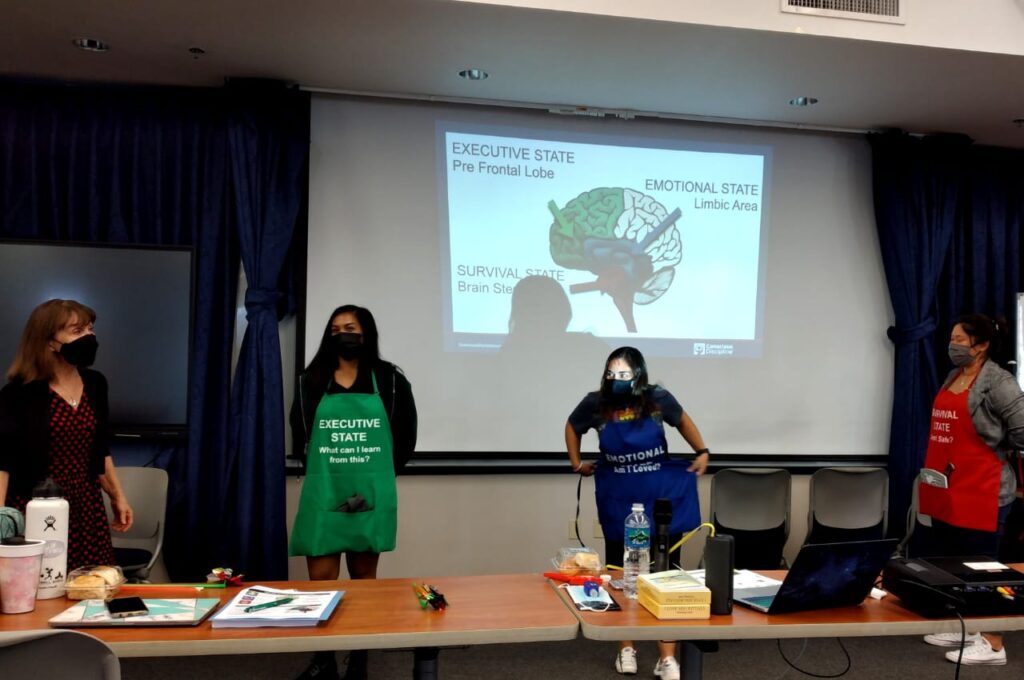
Left to Right: ECE participants demonstrating the Brain States with Ms. Amy Speidel.
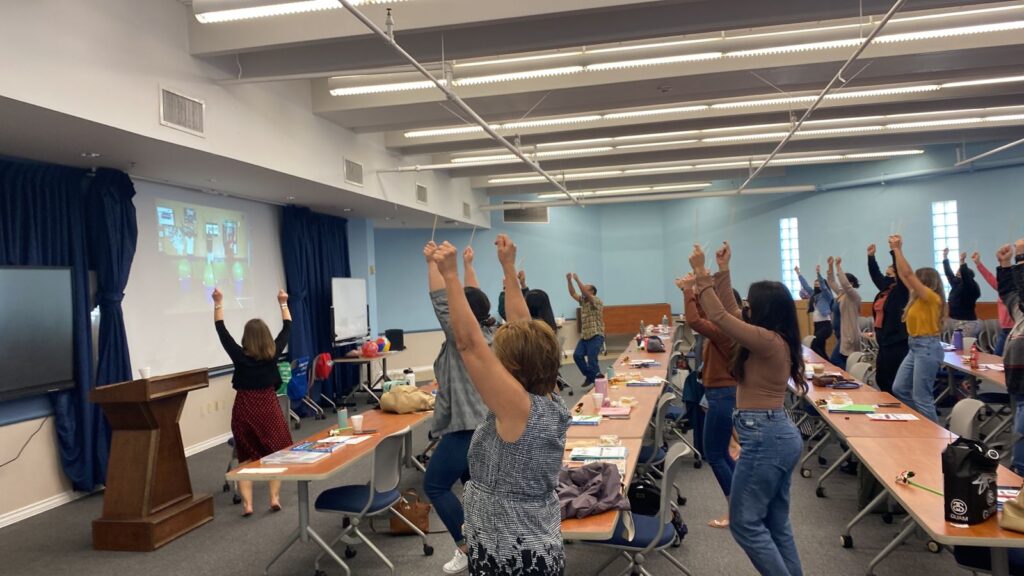
Kindergarten Teachers engaged in an activity facilitated by Ms. Amy Speidel.
Ms. Amy Speidel shared the following:
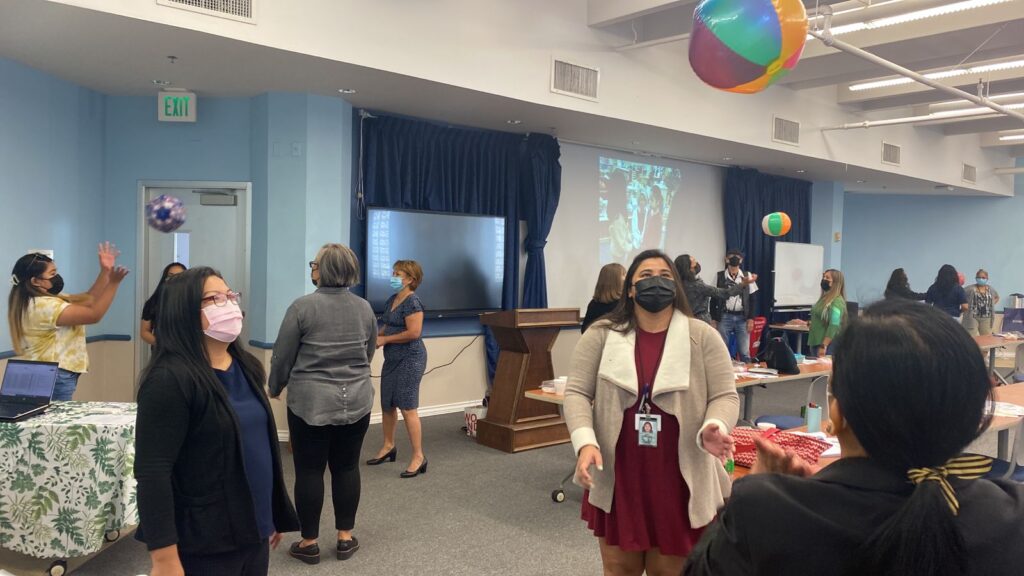
Preschool Teachers participate in an activity working through a three-tier process on developing emotional support.
Additionally, Ms. Geraldine Pablo, an Elementary Principal who supports one of the Pilot Prekindergarten Program, shared the following:
Whether you are an Early Childhood Educator in Guam—or an educator in the Pacific region or in the continental US, or elsewhere—it has always been important to recognize the need to support a child’s emotional well-being and to help them learn the tools for self-regulation. Now, however, due to the additional challenges of COVID-19 and the uptick in stress that our current situation has placed upon us, we also require a deeper understanding of our adult upsets! Conscious Discipline has always been an adult-first process. Our ability to manage our own upsets allows us to be steady enough to offer supportive strategies to our children. This training can be the beginning stages to helping school districts to strive for a process that helps ECE educators with tools that will develop well-balanced children and that meet their social and emotional needs.
Many may believe that shifting from the online/hybrid modality to the in-person modality was a simple process, but it did come with a struggle. What used to be a click away in pressing the Zoom link became the logistics of preparing for a venue, ensuring that the safety protocols were met such as the availability of hand sanitizers and a 3-foot distancing rule for participants, handouts in hardcopy as opposed to electronic form, and moving from a 2-hour training to a 7-hour session. But this is what we were all waiting for—facilitating and engaging with high-quality in-person sessions in the familiar pre-COVID-19 contexts.
For further information on this project, please contact Eloise R. Sanchez, Senior Program Specialist in Social-Emotional Learning and Early Learning Programs at Pacific Resources for Education and Learning (sancheze@prel.org or 671.687.5202).


